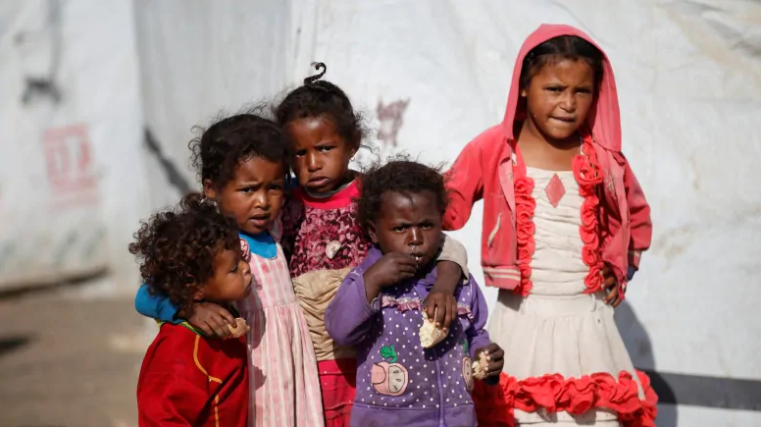A crisis within the world’s greatest humanitarian emergency could be reaching breaking point over the control of lifesaving aid millions of Yemenis need to survive.
Major donors and some of the world’s biggest aid agencies will meet in Brussels on Thursday in an effort to forge a collective response to what is being widely described as unprecedented and unacceptable obstruction by Houthi authorities who hold sway over large swathes of
northern Yemen.
The lives of millions of Yemenis depend on it. A recent Yemen briefing to the UN Security Council underlined that access constraints were affecting 6.7 million Yemenis who needed assistance – a figure which it noted has “never been so high.”
“Humanitarian agencies must operate in an environment where they can uphold humanitarian principles,” says Lise Grande, the UN’s Resident Humanitarian Coordinator in Yemen.
“If we reach a point where the operating environment doesn’t allow us to do that, we do everything we can to change it.”
Even at this eleventh hour, discussions are continuing with senior Houthi officials to find a way forward.
Months of meetings, a succession of envoys despatched to the capital Sanaa, and a series of statements to the UN Security Council have failed to resolve a catalogue of complaints ranging from delays in permits to harassment and detention of staff. One aid official expressed
concern over an “extremely hostile environment”.
Concern spiked when a levy on every aid agency was proposed, amounting to 2% of operational budgets, by the body established by the Houthis in November to exert greater control over aid, known as the Supreme Council for the Management and Co-ordination of Humanitarian
Affairs (SCMCHA).
“This is huge,” explains one aid official who, like most agencies operating in Yemen, did not wish to speak on the record given the acute sensitivity of these issues. “It could be seen as financing the war.”
“We don’t want any disagreements with aid agencies,” insists Mane al-Assal who heads SCMCHA’s Department of International Co-operation.
“We informed them that if we work together towards a common goal to help people in need then we will not disagree, but not if they bring in political considerations,” he tells me when we meet in Sanaa, where Houthi rebels, officially known as Ansar Allah, have been in charge since
2014. His words underscore an atmosphere often clouded by suspicion and criticism of major western aid agencies and their spending priorities.
As for the tax, he explains “there should be nothing wrong with providing funds which enable us to co-ordinate aid when we’re suffering from a blockade” – a reference to restrictions imposed on air and sea ports by the Saudi-led coalition battling the Houthis, who are aligned to
Iran. He then hastens to add the tax is still only a proposal.
We’re surrounded by towering stacks of boxes in a vast warehouse at Sanaa International Airport, a spot chosen by Mr Assal to make his point as forcefully as possible.
“When this aid comes, like these expired medicines or spoilt food, we stop this aid so we don’t make Yemenis sick, or add to the tragedy,” he says, pointing to medicine belonging to an international medical charity.
When I point out that the pallet next to us has an expiry date of June 2020, he explains that by the time the required paperwork is complete, and distribution underway, they will no longer be fit for purpose.



